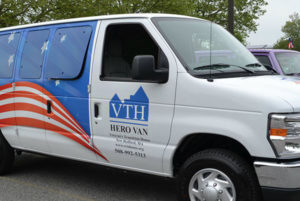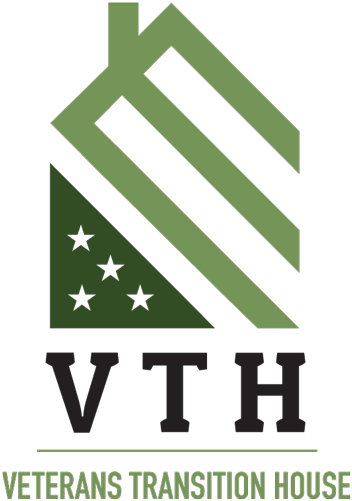VTH provides case management, supportive services and referrals to homeless veterans and veterans at-risk of becoming homeless. These services include Individual Service Plans, clinical services, and direct services to address mental health challenges, alcohol and drug abuse interventions, relapse prevention, nutrition, health and medical care, legal aid, transportation, education, employment and training, and social and wellness activities.
VTH works to help each veteran improve his/her overall health and wellness, live a self-directed life, and strive to reach his/her full potential. Among the resources our staff provides are:
Relapse Prevention
Our staff utilizes an approach that draws from decades of experience as well as the latest clinical strategies. Our Relapse Prevention goal is to help our clients develop positive coping skills in order to resist a return to substance use. An introduction to 12 Step programming is provided, alongside ongoing discussion and exercises around living a life of recovery.
Alcohol/Drug Education
VTH works daily to provide our clients with information and discussion groups regarding the effects of alcohol and drugs on the individual, family, and community, including common medical problems associated with substance abuse.
Mental Health
Our staff works closely with our clients to explain the effects, symptoms, effective coping skills and treatment for common mental health issues and their impact on an individual’s recovery. Common issues range from anxiety anger, depression, PTSD, and other trauma issues. The complete spectrum of mental health issues and their impact on substance abuse and recovery are examined both in groups and through one-to-one discussion and appropriate referrals.
Nutrition, Exercise, Health
Improving it and maintaining physical health–improving it and maintaining it is another important cornerstone to our programming. Residents are encouraged to use YMCA passes which are generously provided by the New Bedford YMCA.
Educational and Vocational
VTH provides its residents with in-house basic computer skills training, vocational and educational referral and access to an extensive array of school and employer resources in the area.
Other Program Content
VTH works in tandem with numerous area service providers to offer workshops that address anger management, compulsive gambling and codependency. We also work with federal, state and city entities to help each veteran access the benefits to which he is entitled.
Transportation
VTH provides its residents with transportation to VA medical appointments and appointments for other services on an as need basis.

In 2019, the Richard and Susan Smith Foundation awarded funds to purchase the newest VTH van.
Supportive Services for Veteran Families (SSVF)
The SSVF program was authorized by Public Law 110-387 and provides supportive services to very low-income veteran families that are currently in or transitioning to permanent housing. SSVF is designed to rapidly re-house homeless veteran families and prevent homelessness for those at imminent risk due to a housing crisis.
The VA has made ending homelessness among veterans a top priority, undertaking an unprecedented campaign to dramatically increase successful outcomes for veterans and their families who are homeless or at risk of becoming homeless. SSVF plays a critical role helping communities build and sustain capacity to prevent a recurrence in Veteran homelessness. SSVF utilizes a Housing First approach that identified people’s need for housing as a basic need that should be met as quickly as possible, without any preconditions.
SSVF Services include:
- Outreach Services
- Case Management Services
- Assistance in Obtaining VA Benefits
- Assistance in Obtaining and Coordinating Other Public Benefits Available in the Community
- Housing and Financial Stability Plans
- Assistance with Housing Search
- Temporary Financial Assistance (Time-limited payment for rent, security deposits)
SSVF General Eligibility:
- A member of a “veteran family” in which the head of the household, or the spouse of the head of household, is a veteran.
- Very low-income: Household income does not exceed 50% of area median income.
- Must be deemed “VA eligible” by the U.S. Department of Veterans Affairs.

